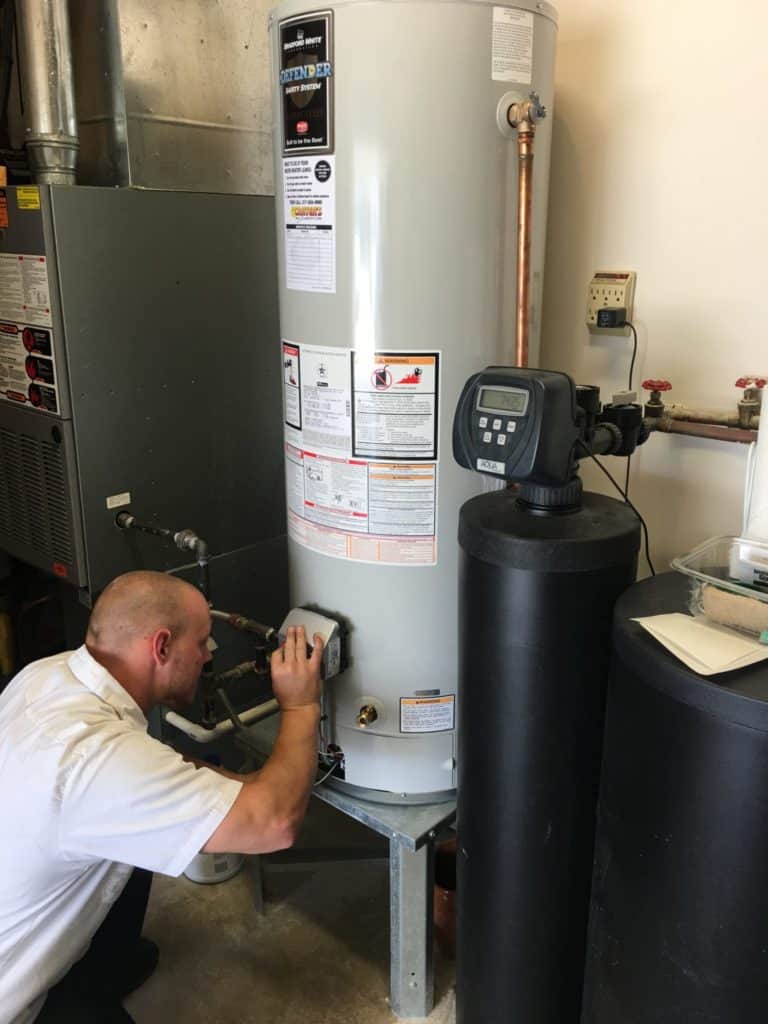Coping with the Most Frequent Hot Water Heater Emergencies
Coping with the Most Frequent Hot Water Heater Emergencies
Blog Article
Everyone is bound to have their private opinion involving Common Hot Water Heater Problems.

A hot water heater is among one of the most essential basic devices that can be located in a residence. With hot water heater, you don't require to experience the stress of home heating water by hand each time there is a requirement to take a bath, wash, or the recipes. However, there is constantly an opportunity that your hot water heater would break down just like a lot of mechanical devices.
It is necessary to note any type of little breakdown and also tackle it swiftly prior to things leave hand. A lot of times, your hot water heater starts to malfunction when there is an accumulation of sediments as a result of continual use. As a safety measure, routine flushing of your water heater is suggested to stop debris accumulation and also protect against practical failure.
Usual hot water heater emergency situations as well as just how to deal with them
Leaking hot water heater storage tank.
In this circumstance, you must transform off your water heater, allow it to cool down, and thoroughly look for the resource of the trouble. At times, all you require to do is to tighten a few screws or pipeline connections in cases of small leaks. If this does not work and also the leakage persists, you could need to employ the services of a professional for an ideal substitute.
Rising and fall water temperature.
Your water heater can start producing water of different temperature levels typically ice cool or hot hot. There might be a need to change either the heating or the thermostat system of your water heater.
Inadequate warm water
Handling a not enough supply of warm water can be aggravating. It may be that the hot water heater can't sustain the warm water demand for your apartment or condo. To manage this problem, you could try to change your heating unit's temperature level dial as well as wait for a few minutes. If the trouble lingers, you can request the help of a professional plumber. Additionally, you could update your hot water heater to one with a bigger ability.
Stained or odiferous water
When this takes place, you need to know if the concern is from the water or the tank source. If there is no funny scent when you run cool water, then you are particular that it is your water heating unit that is faulty. The stinky water can be caused by corrosion or the buildup of germs or sediments in the water heating unit tank.
Conclusion
Some home owners neglect little caution as well as minor faults in their water heater system. This only leads to more damage and a possible total failure of your device. You ought to deal with your hot water heater faults as soon as they come near prevent more costs and also unnecessary emergency problems.
With water heating systems, you do not need to go via the stress and anxiety of heating water by hand every time there is a requirement to take a bath, do the washing, or the dishes. Your water heating system might begin generating water of different temperature levels normally ice chilly or scalding hot. It might be that the water heating unit can't sustain the hot water demand for your apartment or condo. If there is no funny smell when you run chilly water, then you are specific that it is your water heating unit that is faulty. The smelly water can be triggered by rust or the buildup of microorganisms or debris in the water heating system tank.
Common Water Heater Issues and What You Should Do
What Type of Water Heater Do You Have?
Before we begin it’s first important that you identify the type of water heater you have on your property. There are two main types of water heaters out there: conventional and high efficiency.
Both of these types of products typically use either gas or electricity to heat power. There are also solar water heaters that use a thermal collector on the roof or yard to heat the water.
While these models are not as common, they can cut heating costs in half. In this article, we will focus on conventional and high efficiency.
How Do My Electric and Gas Water Heater Work?
Though they look similar, electric and gas water heaters work very differently. It’s important to know their basic function because often problems can be specific to the heating source.
In the electric model, a thermostat on the side of the machine detects the temperature of the water in the tank. When the temperature needs to rise electricity flows to a heating element suspended in the water.
Gas models also use a thermostat device — typically with a mercury sensor at the tip and an additional sensor called a thermocouple. The thermocouple detects whether the pilot light is on and controls the flow of gas.
When the thermostat drops below the appropriate level gas is released which becomes ignited by the pilot light. The flame heats the bottom of the water tank which causes hot water to rise and cold water to drop.
This natural circulation continues until the water reaches the desired temperature. Then, the thermostat triggers the gas control valve to shut off the flow of gas.
What Are the Most Common Issues and How Do You Fix Them?
https://happyhiller.com/blog/common-water-heater-issues-and-what-you-should-do/

I stumbled upon that entry about Is Your Water Heater Leaking? while looking around the internet. Sharing is nice. You just don't know, you will be helping someone out. Thank you so much for your time spent reading it.
Stress-free fix? Contact. Report this page